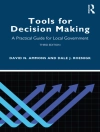India will soon be the world’s most populated country and its political development will shape the world of the 21st century. Yet Hindu nationalism – at the helm of contemporary Indian politics – is not well understood outside of India, and its links to the global neoliberal trajectory have not been explored.
Covering 30 years of Indian politics, this book shows for the first time the importance of education in propagating the acceptance of Hindu nationalism within a neolberal system, including the reframing of the concept of Indian citizenship.
The first five years of Modi rule failed to bring about the development that had been promised and have seen India’s rapid change from a largely inclusive society to one where religious minorities are denied their basic rights.
İçerik tablosu
Introduction
1. The Role of Post-Colonial Politics In re-Theorizing India’s National Identity
Part 1: Education and Ideology
2. Hindu Nationalism Versus Secularism and the Social Realities of Discrimination
3. India’s Neoliberal Schools: The Hindu Nationalist and Neoliberal Agenda in School Education
Part 2: The Effects of Neoliberalism on Teachers and Higher Education
4. Teachers’ Voices: Neoliberal and Hindu Nationalist Agendas in School Education in Delhi, Mumbai, Chandigarh, Bengaluru, Jaipur and Assam
5. Higher Education, Neoliberalism and Hindu Nationalism
Part 3: Whither India?
6. The Effects of the Indian Political Choice Model on Citizenship Under the BJP Modi Government
Epilogue: India at 75
Yazar hakkında
Dr Kusha Anand is Research Fellow at UCL Institute of Education. Dr Anand works on the intersections of race, identity, ethnicity, citizenship and education, mainly in India, Pakistan, Bangladesh and the UK.












